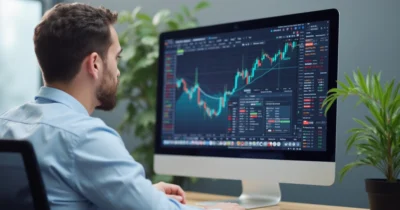Master these trading skills, and you’ll unlock the secrets that professional traders rely on to thrive in the financial markets. The journey to becoming a successful trader starts with understanding what it takes to navigate the highs and lows of trading. These essential skills aren’t just for seasoned experts; they’re also the foundation for anyone aiming to trade with confidence and consistency.
Master these trading skills every pro trader swears by, and you’ll gain the tools needed to analyze markets effectively, manage risks smartly, and control your emotions during trades. By focusing on these crucial abilities, you’ll position yourself for success, whether you’re trading stocks, forex, or cryptocurrencies.
Master these trading skills to transform your trading journey and achieve financial growth. From market analysis to emotional discipline, this guide will walk you through the most important aspects of trading that can take you from a beginner to a seasoned pro. By the end of this article, you’ll be equipped with actionable insights to enhance your trading performance..
Table of Contents
1. Mastering Market Analysis: The Backbone of Every Trade
Every successful trade begins with a solid understanding of the market. Without this foundation, trading becomes little more than gambling. Mastering market analysis involves studying both fundamental and technical aspects of the market to make informed decisions.
Fundamental Analysis
Fundamental analysis is all about understanding the factors that drive market movements. This means diving into economic indicators, company financials, and global events to assess the intrinsic value of an asset. For instance:
- Economic Indicators: Keep an eye on reports like GDP growth, unemployment rates, and interest rate announcements.
- Corporate Earnings: Analyze financial statements to gauge a company’s health if you’re trading stocks.
- Global Events: Geopolitical events, natural disasters, or shifts in government policy can have significant impacts on markets.
Technical Analysis
While fundamental analysis explains the “why,” technical analysis focuses on the “how.” It involves studying price charts, trends, and patterns to predict future price movements. Key tools include:
| Indicator | Purpose | Best Use Case |
|---|---|---|
| RSI | Measure market momentum | Spot overbought/oversold levels |
| MACD | Identify trend reversals | Pinpoint entry/exit signals |
| Moving Averages | Smooth out price action | Determine overall trend direction |
By combining these two approaches, you can make more informed decisions and significantly increase your chances of success.
2. Risk Management: Protect Your Capital Like a Pro
Pro traders know that preserving capital is just as important as making profits. Without a solid risk management strategy, even the best trades can lead to disaster. Here’s how to manage risk effectively:
Setting Stop Losses and Take Profits
A stop-loss is your safety net. It’s a predetermined price level where you’ll exit a trade to limit losses. Similarly, a take-profit level locks in your gains. Both tools are essential for disciplined trading. For example:
- Risk-to-Reward Ratio: Aim for at least a 1:3 ratio, meaning for every dollar you risk, you aim to make three.
Diversification
Don’t put all your eggs in one basket. Spread your investments across different asset classes, industries, or markets to reduce risk. For instance:
- Forex: Trade multiple currency pairs instead of focusing solely on one.
- Stocks: Diversify your investments across sectors like technology, healthcare, and energy.
Pro Tip: Stick to the 2% Rule
Never risk more than 2% of your total capital on a single trade. This approach ensures you can withstand a string of losses without depleting your account.
3. Emotional Discipline: The Silent Game-Changer
Trading isn’t just a test of your analytical skills; it’s a test of your emotional resilience. Fear, greed, and impatience are the enemies of success. Here’s how to manage your emotions:
Managing Fear and Greed
- Fear: Don’t let losses paralyze you. Follow your trading plan and have confidence in your analysis.
- Greed: Avoid chasing after quick profits. Overtrading often leads to mistakes.
Practicing Patience
Patience is a virtue, especially in trading. Wait for high-probability setups that align with your strategy instead of impulsively jumping into trades. A trading journal can help you track your decisions and learn from your experiences.
4. Developing a Winning Mindset
Your mindset is key to your success in trading. Pro traders approach the markets with confidence, curiosity, and a commitment to improvement.
Continuous Learning and Adaptation
Markets are constantly evolving, and so should you. Keep up to date with the latest strategies, tools, and market trends. Attend webinars, read trading books, and follow industry leaders.
Networking with Other Traders
Learning from others can offer valuable insights and inspiration. Join trading forums, attend meetups, or participate in online communities to share knowledge and experiences.
5. Automation and Technology in Trading
Technology has revolutionized trading, making it more accessible and efficient than ever. Pro traders leverage automation and tools to streamline their processes.
Leveraging Trading Tools and Bots
Platforms like MetaTrader, TradingView, and NinjaTrader offer advanced features such as automated trading, real-time data, and customizable charts. Bots can execute trades based on pre-set criteria, removing emotion from the equation.
The Power of Backtesting
Backtesting allows you to assess your strategies using historical data to determine how they would have performed. This helps you fine-tune your approach before risking real money.
Conclusion: Your Path to Becoming a Pro Trader
Trading like a pro isn’t about luck; it’s about mastering essential skills, staying disciplined, and continuously improving. By focusing on market analysis, risk management, emotional discipline, and leveraging technology, you can transform your trading journey. Start small, stay consistent, and remember that every expert was once a beginner. Now is the time to take the first step toward mastering these trading skills and achieving your financial goals.
FAQ: Frequently Asked Questions About Trading Skills
What are the most important trading skills for beginners?
Mastering market analysis, managing risk, and developing emotional discipline are crucial for new traders.
How can I improve my trading discipline?
Keep a trading journal, set clear goals, and follow a structured trading plan to minimize emotional decisions.
What tools do professional traders use?
Pro traders rely on platforms like MetaTrader for execution, TradingView for chart analysis, and automation tools for efficiency.
How much capital do I need to begin trading?
While there’s no fixed amount, starting with $500–$1,000 is recommended for forex or stock trading. The important thing is to trade with money that you can afford to lose.
Can I succeed in trading without prior experience?
Yes, with the right education, practice, and discipline, anyone can develop the skills needed to trade successfully.







